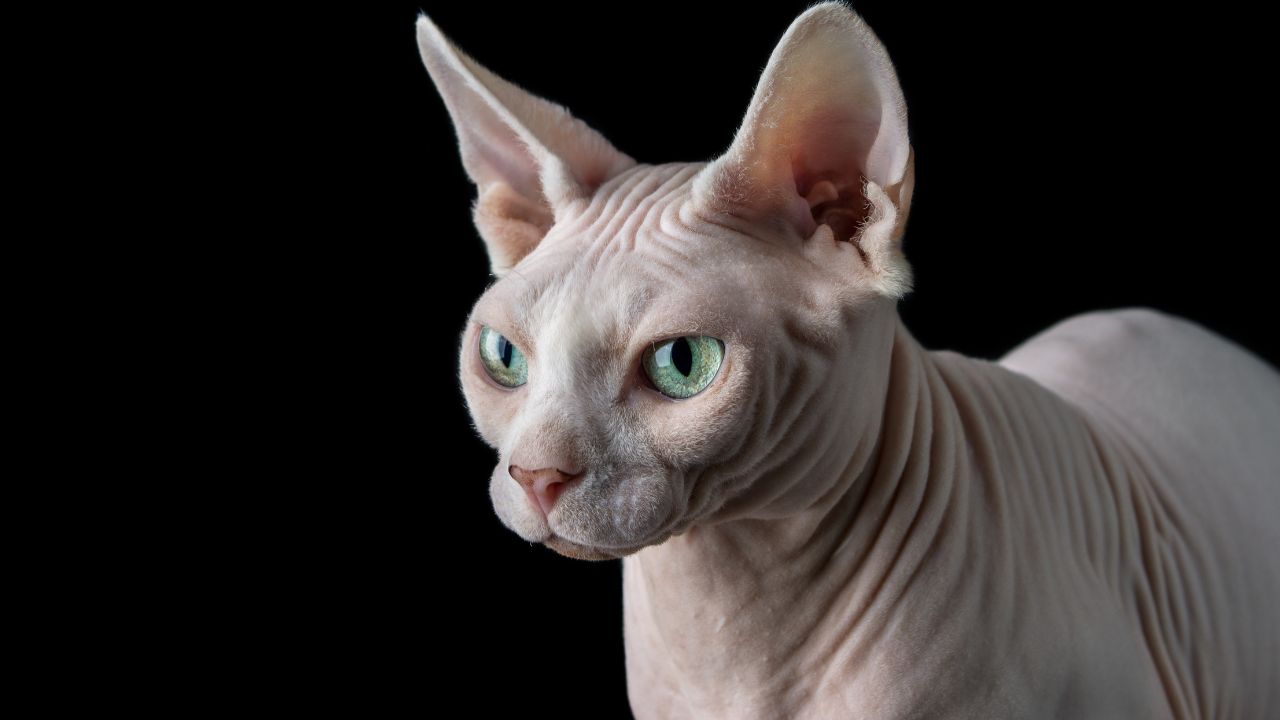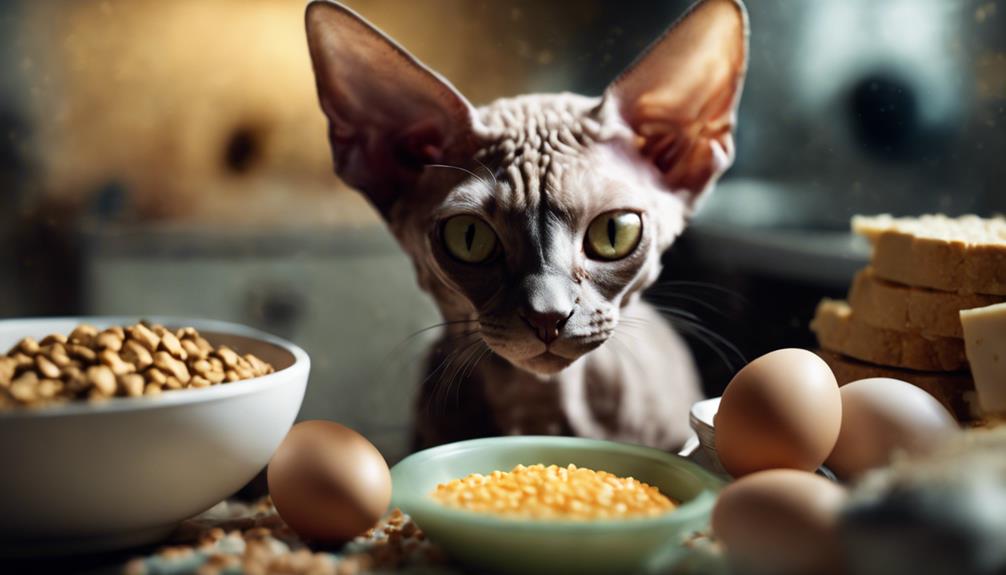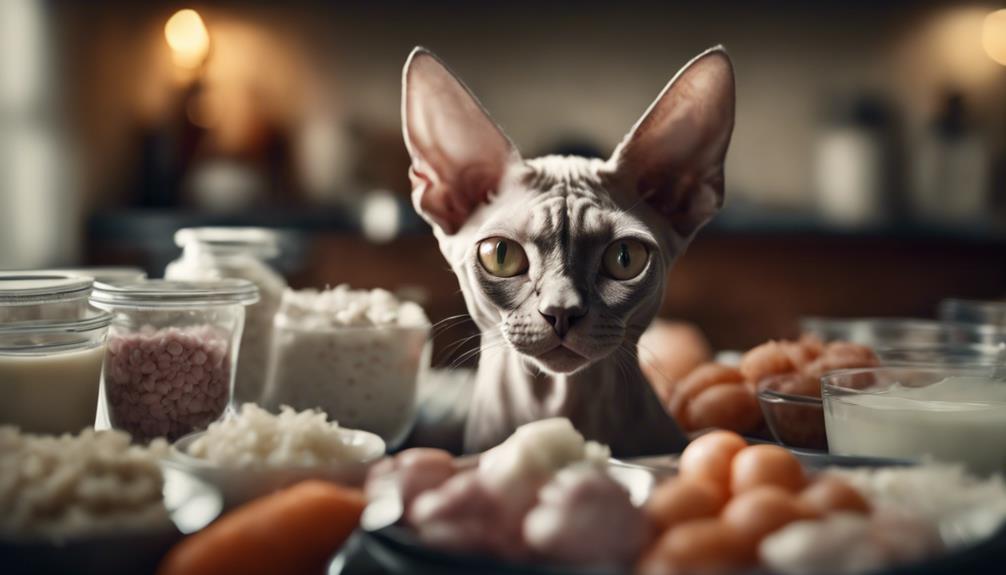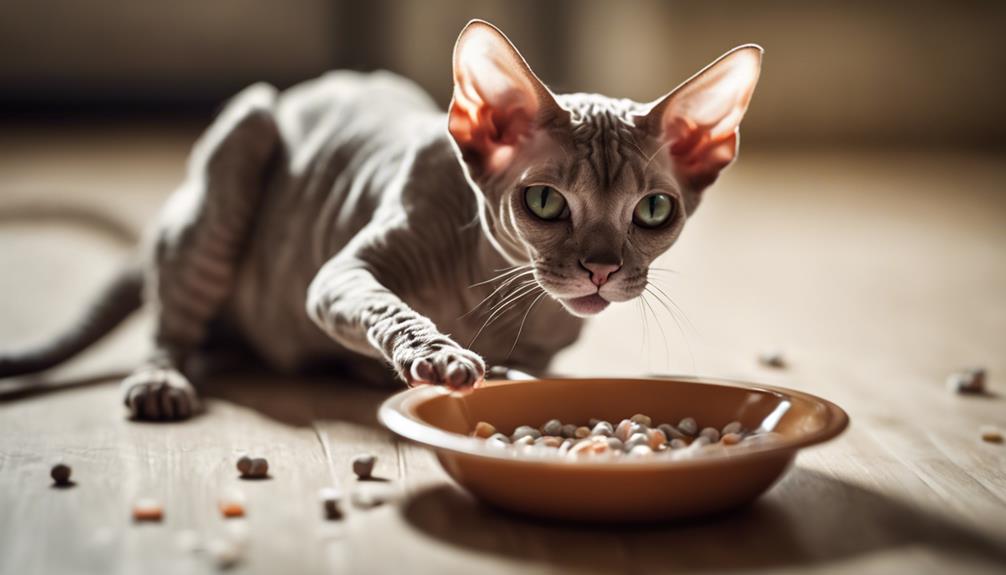The Sphynx cat is a unique and captivating breed that has been gaining popularity among cat lovers for its hairless appearance. This breed is known for its lack of fur, which is a result of a natural genetic mutation. While Sphynx cats may not be everyone’s cup of tea, they have plenty of loyal fans who appreciate their quirky personalities and distinctive looks.
One question that often comes up among Sphynx cat enthusiasts is: what is the longest living Sphynx cat? While the average lifespan of a Sphynx cat is between 8 to 14 years, some of these feline friends have managed to live well beyond that range.
In fact, one of the oldest cats ever recorded was a Sphynx named Grandpa Rex, who lived to the incredible age of 34 years old. This impressive feat has captured the attention of cat fanciers’ association and has put the spotlight on the Sphynx breed.
If you’re a fan of Sphynx cats, you’re probably curious about what makes these hairless felines so special. Whether you’re interested in their genetic mutation, lack of fur, or quirky personalities, there’s no denying that Sphynx cats are a fascinating breed. In this article, we’ll explore the topic of the longest living Sphynx cat and provide some insights into what makes these cats so unique. So, sit back, relax, and let’s dive into the world of Sphynx cats.
What is the Longest Living Sphynx Cat?
Sphynx cats are known for their unique appearance, playful demeanor, and affectionate nature. As a pet owner, it’s natural to be curious about the longevity of your furry friend. The lifespan of a Sphynx cat can vary depending on several factors. In this section, we’ll explore what factors affect the lifespan of a Sphynx cat and how you can increase your Sphynx cat’s lifespan.
Factors that Affect Sphynx Cats’ Lifespan
Several factors can affect the lifespan of a Sphynx cat. These factors include genetics, diet, health problems, and environmental factors. Here are some of the key factors that can impact your Sphynx cat’s lifespan:
- Genetics: Like all cats, Sphynx cats are susceptible to hereditary health conditions that can affect their lifespan. For example, hypertrophic cardiomyopathy (HCM) is a common heart condition that affects Sphynx cats. Regular health checkups and echocardiograms can help detect and manage HCM in Sphynx cats.
- Diet: Feeding your Sphynx cat high-quality food can help ensure that they receive the necessary nutrients to maintain good health and a long lifespan. Avoid feeding your Sphynx cat table scraps or low-quality commercial cat food, as these can lead to health problems and a shorter lifespan.
- Environmental factors: Sphynx cats are indoor cats and are sensitive to cold weather and sunburn. Providing a warm and comfortable environment for your Sphynx cat can help prevent health problems and increase their lifespan.
How to Increase Your Sphynx Cat’s Lifespan
As a Sphynx cat owner, there are several steps you can take to increase your furry friend’s lifespan. Here are some tips:
- Regular health checkups: Regular health checkups can help detect and manage health problems early on, which can increase your Sphynx cat’s lifespan.
- High-quality food: Feeding your Sphynx cat high-quality food can help ensure that they receive the necessary nutrients to maintain good health and a long lifespan.
- Skin care: Sphynx cats require regular bathing and skin care to prevent skin problems, ear wax buildup, and other health issues.
- Dental care: Regular teeth brushing and dental checkups can help prevent periodontal disease and other dental problems that can affect your Sphynx cat’s overall health and lifespan.
In conclusion, the lifespan of a Sphynx cat can vary depending on several factors. By taking steps to ensure your Sphynx cat receives regular health checkups, high-quality food, and proper skin and dental care, you can help increase their lifespan and enjoy many happy years together.

Sphynx Cat Breed Overview
Sphynx cats, also known as the Canadian Sphynx, are a unique and fascinating breed of feline. These hairless cats are known for their friendly, playful, and loving personalities, making them a great addition to any family.
Sphynx Cat Breed History
The Sphynx breed originated in Toronto, Canada, in the 1960s through selective breeding of hairless cats. While the breed is often associated with ancient Egypt due to their sleek and solid appearance, they are actually a modern breed that was developed relatively recently.
Sphynx Cat Breed Characteristics
Sphynx cats have a muscular body with prominent cheekbones, large ears, and no fur. However, they may have a small amount of fuzz on their bodies, and their skin can have a variety of colors and patterns. They are an energetic breed that loves playing and socializing with their owners and other pets.
Sphynx Cat Breed Standards
According to TICA (The International Cat Association), Sphynx cats are a medium-sized breed, weighing under 12 pounds. They have a low tendency to shed and are considered hypoallergenic. Sphynx cats are also known for their vocal personalities and attention-seeking behavior.
When it comes to grooming, Sphynx cats require regular baths to keep their skin clean and healthy. They also need their ears cleaned and nails trimmed regularly. While they may be prone to certain infections and skin conditions, with proper care and attention, Sphynx cats can live long and healthy lives.
Overall, the Sphynx breed is a loyal and loving family pet that is sure to bring joy and entertainment to any household.




